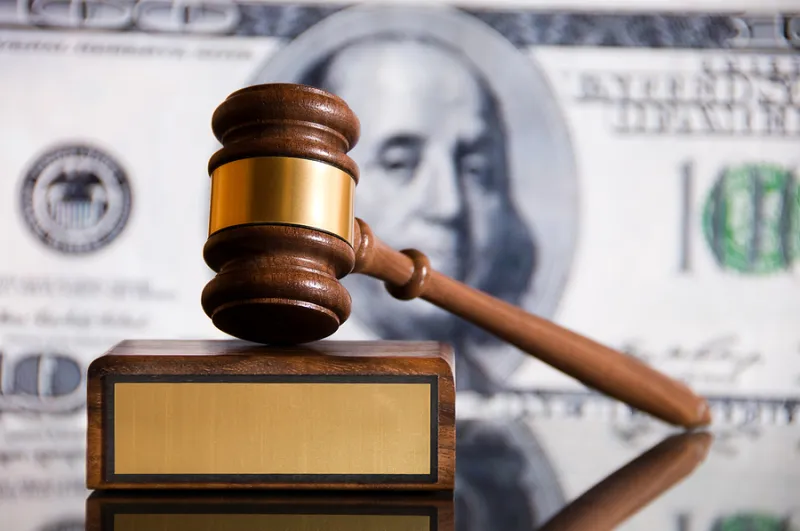Critics of activist short sellers have been trying for years to convince regulators to rein them in, mostly to no avail. But now, after a three-year investigation of these market participants, the government has indicted one of the most powerful and outspoken short sellers — and what happens next could have broad implications for the entire group.
One looming question involves whether investors could be required to abstain from trading for a number of days after releasing a research report, appearing on TV, or even posting an opinion on X, about a stock.
The possibility of such a ban, which has gone largely unnoticed, stems from the securities fraud and market manipulation case against Andrew Left, founder of Citron Research and Citron Capital, who is the subject of both a criminal indictment by the Department of Justice and a civil complaint by the Securities and Exchange Commission.
The charges are similar in both, but a criminal conviction carries penalties of up to 25 years in prison. Left was arraigned in a Los Angeles federal court last week and pled not guilty.
The SEC only seeks civil remedies — and that’s where a potential trading ban comes into play.
The SEC charged Left and his firm for engaging in a $20 million scheme to defraud followers by publishing false and misleading statements regarding his supposed stock trading recommendations. “Once recommendations were issued and the stocks moved, Left and Citron Capital quickly reversed their positions to capitalize on the stock price movements,” according to the SEC’s complaint. “Left bought back stock immediately after telling his readers to sell, and he sold stock immediately after telling his readers to buy.”
The SEC wants Left and any business associated with him to be banned from trading any security for five days after he publishes anything about it, “whether through a report, tweet, social media post, media interview, or other written or oral means,” the commission’s complaint says.
Both short sellers and lawyers said such a trading ban could be a back-door form of regulation — and one that could have broad implications for short sellers if adopted. An attorney called it an indication that “the SEC staff is on the warpath” while one short seller said that if a ban were adopted “the activist short selling businesses would be dead.” Another considered the impact slightly less draconian, saying simply that the business would become “less profitable and more dangerous.”
It is common practice for activist short sellers to cover part, or all, of their short positions after releasing a report — which is almost always followed by a decline in the stock price of the target company. Activists say their attorneys have consistently advised them that doing so was legal.
Carson Block, founder of Muddy Waters Capital, has publicly acknowledged that his firm engages in the practice and calls it risk management. Block, who was also under investigation by the SEC and the DOJ, recently received what’s called a close-out letter from the SEC, which states that the government has closed its investigation against him without filing any charges, according to an individual with knowledge of the matter. Block declined to comment.
Block and other short sellers, including Left, typically include disclosures on their reports that indicate they may cover their short at any time. (Posts on X and television appearances typically don’t mention this.)
But academic critics, led by Columbia Law School professor Josh Mitts, as well as veteran short seller Marc Cohodes, have decried the practice. “Smash and grab” is the term Cohodes coined to describe the trading, likening it to “pump and dump” schemes.
Cohodes told Institutional Investor that he feels vindicated by the government’s recent actions. “I mentioned this four years ago and took a lot of heat for it” from short sellers, he said. But Cohodes added “the government not only went and investigated it and charged somebody. They also want to change the law along the lines of what I wanted.”
In 2020 Cohodes, with the assistance of Mitts, penned an op-ed in the Financial Times that stunned the short-selling community by calling for a mandatory ten-day holding period by a firm or individual who publicly disseminated market-moving information about the security at issue. The trading ban, Cohodes argued, should apply on both the long and short side.
In a rulemaking proposal to the SEC that year, Mitts, fellow Columbia Law School professor John Coffee, and ten other law professors asked the SEC to force short-sellers who publicize their views and position to “promptly” say when their disclosure of being short “no longer reflects current holdings or trading intention.” They wanted short-sellers to make that disclosure within 24 hours of a change in trading or by the beginning of the next day’s trading, arguing that not to do so was a fraud on the market.
The proposal went nowhere. But in addition to presenting these ideas to the SEC, Mitt worked as a consultant to the DOJ in its investigation of activist short sellers, and a trading ban made its way into the SEC’s complaint against Left.
Several attorneys have argued against such a ban, saying it would create the potential for short squeezes, among other problems.
Short sellers also consider it an infringement of free speech. “What they're actually saying is if you are a public figure who has a voice and a megaphone and you want to speak about a stock, we are going to take your property rights away from you for five days,” said one.
John Courtade, a former senior SEC enforcement litigator who has represented short sellers, said viewing the ban as an effort at rulemaking is “a completely accurate reading of what they're trying to do.” But he doubted it would be successful in the end.
He said even if Left and the SEC agreed to a consent decree that included the trading ban, it has “no more precedent than the staff issuing an interpretive release.”
“They often push the envelope in consent degrees and then cite the consent decrees as authority to try to push it further,” he said. While attorneys representing short sellers should tell their clients that the SEC is pushing the idea, he said. “there is no legal basis for it.”
Still, the prospect is already sending chills through the short seller community. “I’m definitely not going to publish anything anymore… or at least until there is some clarity,” one activist short seller told II.
The fraud statute under which the case against Left has been brought is broad, leading the government to interpret the law in ways that are not actually spelled out in it. “The securities laws were written many decades ago,” said Cohodes. “They’re not up to speed with the internet.”
Although the government has apparently dropped investigations against other activist short sellers, many view the case against Left as a warning. It is also part of the government’s effort to regulate what it considers harmful social media speech.
Whether Left's actions are legal or not, the charging documents do not paint a pretty picture. Left is accused of deceiving the public by suggesting he had outside investors in his hedge fund, Citron Capital, when he did not and claiming to be independent when he had been compensated for his research by a hedge fund. He also allegedly talked about his ability to “destroy” a stock and said trading against retail investors was like taking “candy from a baby.” Left also put price targets on companies, which the government argues led people to believe he would not cover his short or sell his long position until that price was reached.
Left declined to comment.
James Spertus, Left’s lawyer, told Bloomberg the government’s case against his client was “defective,” and that Left was not required to disclose his trading intentions. He also pointed out that the government wasn’t accusing Left of publishing false information. (In fact, one of Left’s shorts that the SEC singled out was the Canadian cannabis company Cronus Group, which the SEC later charged with fraud.)
And Left’s advice apparently was pretty good. Financial publication Sherwood analyzed the Left recommendations in the indictment and found that if a person had purchased or shorted each of his 16 recommendations and held onto them, he would have a 318 percent return, excluding borrowing fees, since the date of the first call in August of 2018 until now. The S&P 500, meanwhile, is up about 86 percent since that time.
“I think the government is going to have a hard time convicting him because there’s no evidence that he ever did a trade or said anything that was contrary to what he believed,” Whitney Tilson, former short seller and hedge fund manager, said in an email last week.
But he argued that “Left clearly pushed far into the gray area of what’s legal or not. In my view, if what he did wasn’t illegal, it should be,” in reference to covering shorts quickly after reports were released. Tilson added that he was “glad that this case will likely bring some clarity to a large gray area that’s always existed.”







